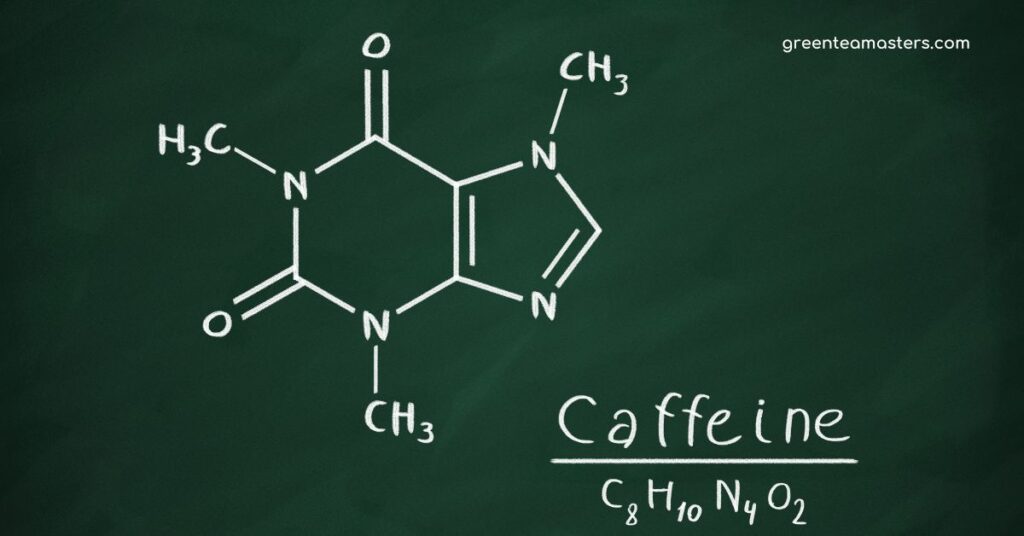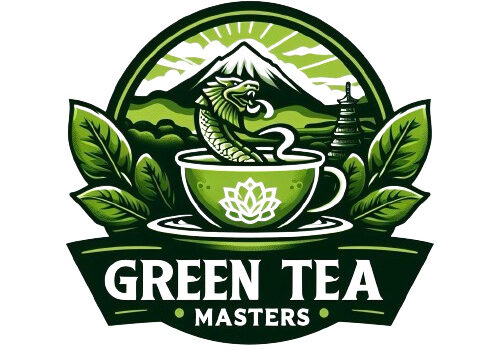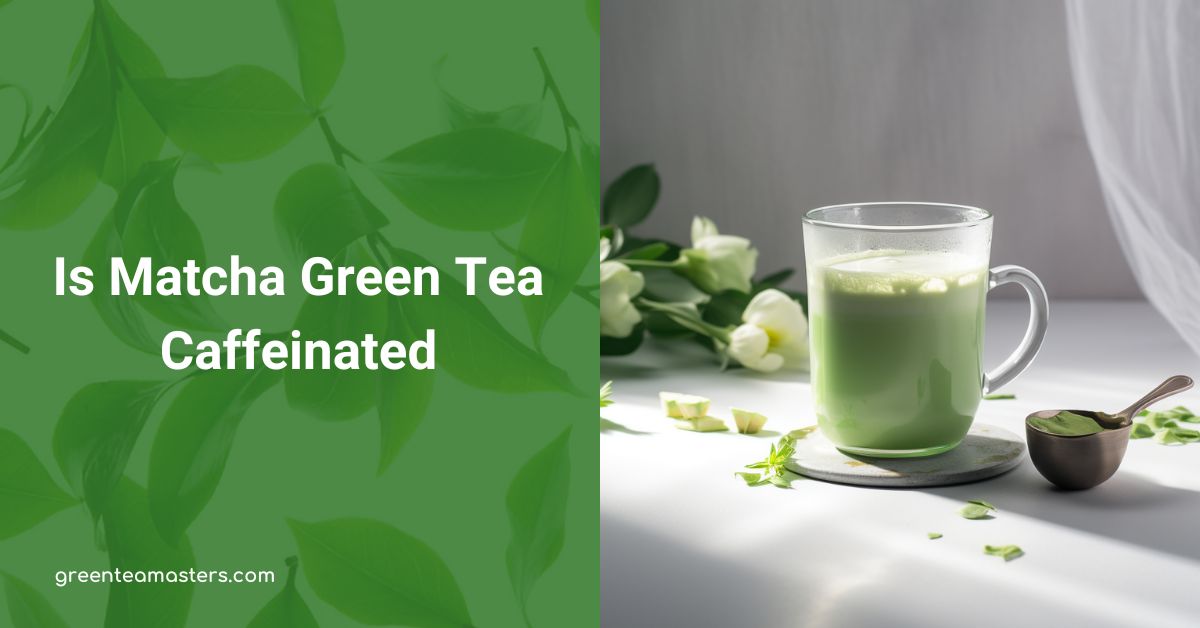Are you a matcha lover wondering about the caffeine content in your favorite green tea powder? Or perhaps you’re considering adding matcha to your daily routine and want to understand its energizing effects? This comprehensive guide will answer all your questions about whether matcha green tea is caffeinated and dive deep into the details surrounding matcha and caffeine.
What is Matcha?
Before we explore the caffeine levels, let’s quickly define matcha. Matcha is a finely milled powder made from shade-grown green tea leaves (Camellia sinensis). Unlike regular green tea where you steep the leaves and discard them, with matcha you ingest the entire leaf in powder form when you drink it. This unique preparation method gives matcha a richer flavor and higher concentration of nutrients compared to steeped green teas.
The Answer: Yes, Matcha Green Tea Contains Caffeine
So is matcha caffeinated? The simple answer is yes, matcha most definitely contains caffeine. As a true green tea variety derived from the Camellia sinensis plant, matcha naturally provides the stimulant we know as caffeine.
How Much Caffeine is in Matcha?
Now that we’ve established matcha is a caffeinated beverage, you’re likely wondering about the specifics on its caffeine levels. The caffeine content of matcha can vary based on a few key factors:
Tea Plant Variety: Different cultivars of the Camellia sinensis plant contain varying baseline levels of caffeine.
Growing Conditions: The soil conditions, shade levels during growth, and environmental factors all influence the caffeine concentrations in the tea leaves.
Processing Methods: How the leaves are harvested, stemmed, ground into powder, and packaged can also impact caffeine amounts.
With those variables in mind, a typical serving of matcha green tea powder (around 1-2 teaspoons or 2-4 grams) contains approximately 35-70mg of caffeine on average.
To give you some context, an 8oz cup of brewed coffee contains around 95mg of caffeine, while a cup of steeped green tea has about 28mg. So matcha tends to be higher in caffeine than steeped green tea, but lower than coffee beverages.
Matcha vs. Green Tea Caffeine Levels
Speaking of green tea, how does matcha’s caffeine content compare to regular steeped green tea? Well, because you actually ingest the entire leaf with matcha rather than just steeping it, matcha provides a more concentrated hit of caffeine.
A typical cup of matcha made with 2-4 grams of powder contains 35-70mg of caffeine, while one cup of steeped green tea has only around 28mg. So you’ll get about 1.25 to 2.5 times more caffeine from drinking matcha green tea compared to a regular green tea beverage.
Factors that Affect Matcha’s Caffeine
As mentioned, various growing and processing factors can influence the caffeine levels in a particular batch of matcha green tea powder. Here are some of the key determinants:

Tea Cultivar & Leaf Age
Different cultivars (varietals) of Camellia sinensis naturally produce varying baseline levels of caffeine. Additionally, younger tea leaves contain more caffeine than older leaves from late growth flushes.
Shading Process
The shading process is what gives matcha its beautiful, vibrant green hue and concentrated nutrient content. But shading the tea plants also causes an increase in caffeine synthesis as the plants try to boost growth under lower light levels.
Grinding Process
Since matcha involves grinding the entire leaf, any caffeine captured during grinding gets transferred to the final powder product. Grinding methods that are more efficient at capturing compounds from the leaves result in higher caffeine matcha powder.
Matcha Grade
There are different grades of matcha quality from premium ceremonial grades down to culinary types. In general, the higher quality matchas from early harvests tend to contain higher caffeine levels.
Caffeine & L-Theanine: Matcha’s “Calm Energy”
One unique characteristic of matcha’s caffeine content is that it’s balanced by naturally occurring L-theanine, an amino acid almost exclusively found in tea plants. L-theanine has been shown to promote alpha brain waves which induce a state of “calm attentiveness.”
This dynamic between caffeine and L-theanine leads to matcha’s renowned “calm energy” effect. Many matcha drinkers report feeling more focused and alert from matcha, but without the edginess or crash that sometimes occurs from coffee’s caffeine kick.
Potential Benefits of Matcha Caffeine
When consumed in moderation as part of a healthy diet, the caffeine in matcha green tea powder may provide several benefits:
Increased Energy & Alertness: Caffeine stimulates the central nervous system and can provide a healthy energy boost.
Cognitive Enhancement: Studies suggest caffeine may improve brain function, memory, focus, and concentration.
Exercise Performance: Caffeine has been shown to increase endurance and athletic performance.
Thermogenesis: The caffeine and antioxidants in matcha may provide a slight boost to metabolism and calorie burning.
Matcha’s L-theanine can also enhance the positive effects of caffeine while reducing symptoms like anxiety and jitters.
Risks of Excessive Matcha Caffeine
While moderate matcha intake is generally safe and well-tolerated, it is possible to consume too much caffeine from matcha and experience negative side effects, including:
- Headaches
- Insomnia
- Irritability
- Increased Heart Rate
- Digestive Issues
Most experts recommend limiting caffeine intake from all sources to no more than 400mg per day for healthy adults. Depending on your caffeine sources and sensitivity levels, you’ll want to monitor your total intake from matcha, coffee, sodas, energy drinks, etc.
Those with certain medical conditions should be especially cautious with caffeine and speak to their doctor. This applies to pregnant women, those with anxiety disorders, heart conditions, and other caffeine sensitivities.
Moderating Your Matcha Consumption
To avoid overconsumption of caffeine from matcha, stick to the recommended serving sizes from quality matcha brands, which is typically about 1-2 teaspoons of powder (2-4 grams) per 6-8oz of liquid. Many matcha drinkers find having 1-2 servings per day to be a reasonable amount for their caffeine intake and energy needs.
Prepare Your Matcha Mindfully
When preparing matcha drinks or matcha lattes, be mindful that using more powder than the standard serving will further increase the caffeine content. A “matcha bomb” with multiple teaspoons of matcha can be the equivalent of drinking several cups of coffee worth of caffeine!
Also Read: Is Matcha Green Tea Good for Diabetics?
The Matcha Myth: Less “Buzz” than Coffee
You may have heard the claim that matcha provides “calm, alert energy” due to its L-theanine levels or special antioxidants called catechins. However, research suggests the effects stem primarily from matcha’s balanced ratio of caffeine to L-theanine, not necessarily less caffeine overall.
So while many prefer matcha’s more smooth and sustained energy compared to coffee’s intensity, keep in mind that it still contains high doses of caffeine in concentrated form. Consuming too much can absolutely lead to anxiety, insomnia, and other side effects of excessive caffeine intake.
In Summary: Is Matcha Green Tea Caffeinated?
To summarize, yes, matcha green tea is most definitely a caffeinated beverage containing significant levels of caffeine. A typical serving provides around 35-70mg of caffeine on average, making it higher in caffeine than steeped green tea but lower than coffee.
However, matcha’s caffeine is balanced by L-theanine which promotes calm alertness. When consumed in moderation as part of a healthy lifestyle, matcha can provide an energizing yet smooth boost without the edginess of other caffeinated drinks.
But it’s still crucial to mindfully watch your intake and avoid excessive consumption of matcha and other caffeine sources. As with anything, moderation is key to enjoying matcha’s invigorating benefits.
Caffeine In Matcha – FAQ
1. How does the caffeine content in matcha compare to coffee?
On average, one serving of matcha (around 1-2 tsp or 2-4g of powder) contains 35-70mg of caffeine. This is lower than an 8oz cup of brewed coffee, which has around 95mg of caffeine. However, matcha provides a more concentrated dose of caffeine compared to steeped green tea.
2. Is matcha higher in caffeine than regular green tea?
Yes, matcha tends to have higher caffeine levels than loose leaf steeped green tea. This is because with matcha you consume the entire leaf in powder form, providing a more potent dose of caffeine and other nutrients.
3. Does the caffeine in matcha give you a different kind of energy compared to coffee?
Many people report that matcha provides a “calm alertness” rather than the edgy buzz from coffee’s caffeine. This is likely due to matcha’s natural L-theanine which balances out the stimulating effects of caffeine. The combination can promote focus and productivity without the jitters.
4. How much matcha can you safely drink per day in terms of caffeine?
Most experts recommend limiting caffeine intake to under 400mg per day for healthy adults to avoid negative side effects. With typical matcha containing 35-70mg of caffeine per serving, most people can safely have 1-2 servings (cups/lattes) per day depending on other caffeine sources.
5. Are there any risks or side effects from the caffeine in matcha?
When consumed in excess, the high caffeine content of matcha can potentially lead to side effects like headaches, insomnia, irritability, increased heart rate, and digestive issues. Those with caffeine sensitivities should be especially cautious with matcha.
6. Does the caffeine level vary based on the quality or grade of matcha?
Yes, higher quality ceremonial grade matchas from early harvests tend to contain more caffeine than culinary grade matcha powders from later harvests. The cultivar, shading process, grinding methods and leaf age can all impact the final caffeine concentration.


11 thoughts on “Is Matcha Green Tea Caffeinated? A Comprehensive Guide [2024]”